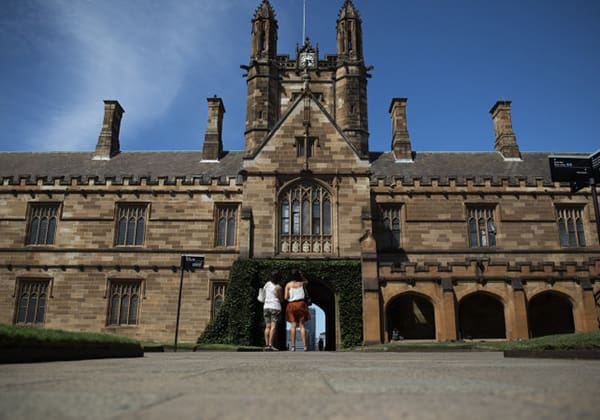For the average domestic student, their transition to university is often characterised by challenges, whether it be attempting to understand university jargon, or trying to get administrative support from the University or the Student Centre. Often these and other grievances are manifested on USyd Rants, a repository for the issues that resonate with many. However, outside of the dominant discourse, there exist far greater barriers for international students and the international student community. From the oft-quoted language barriers, to the less emphasised cultural disparities, to one’s personal conflicts attempting to understand and accept their own identities, these issues seem to get less air time.
These dilemmas have only been made more troubling in recent years, as international students are heralded ‘cash cows’ by the university, and students become all the more alienated from the wider university community. Though the facade of inclusivity is upheld by popular depictions of international students, such as in the “Life in Sydney” USyd website page, the contrast to reality is quite stark.
The situation has only been exacerbated during the height of the COVID-19 pandemic in Australia, with widespread reports at the time of many international students facing financial difficulties with the impacts from lockdowns and newer regulations. There have also been many instances of these students needing to rely on food banks, and struggling to pay rent due to the loss of part-time income.
However, as opposed to offering them necessary support, be that through government aid or the University directly, a rhetoric has simply been repeated that international students in financial difficulty caused by the unforeseen pandemic could simply choose to return home. This is an assumption that is not only irresponsible, as it absolves blame from the University and government, but is also dangerous, as it essentially directs students to move to higher-risk, harder-hit areas of the pandemic away from the safety of Australia. This has all occurred in spite of University accommodation remaining largely vacant, and with the SRC having previously moved a motion calling for the University to use these spaces for temporary, affordable housing purposes.
In a sense, for an institution with over a billion dollars worth of reserves, whose fundamental purpose is to serve the interests of students, there appears to be a moral imperative in such extreme circumstances to support those that are experiencing financial difficulty and immense distress through no fault of their own.
However, this is an expectation that the University has thus far completely failed to meet. In essence, it is a response hinged on the University’s own self interest, intentional or otherwise, that highlights and reinforces the supremacy of the University’s practical obligations over its normative ones.
In recent weeks, an email reminder for international students regarding their 1st of March payment date for their Semester 1 Units of Study gathered attention in the international student community, in alignment with the aforementioned concerns. Within the Chinese demographic in particular, as reported by many WeChat news curators, the University has quoted in an email that: “If you cannot make the payment for your Semester 1 tuition fees by the due date, we advise you to withdraw from your Units of Study for Semester 1 now and return to your studies when you can cover the cost of your fees.”
This, whilst perfectly legally acceptable (as with previous responses during the height of the pandemic), is nevertheless an imperfect response, both in rhetoric and policy, carrying repercussions and impacts for the community. With the pandemic’s disproportionate, short-term impacts as well as a lack of any alternatives or support structures to assist with fee payments, students that would ordinarily be able to pay for their studies are being hung out to dry. With the international students being significantly affected being those of a generally lower socio-economic background, it could also catalyse the institutionalisation of disadvantage, leading to more profound long-term concerns. Ultimately, for the University, the disparity between the need to attract more international students, and their inability to provide necessary aid and support may, in the long term, simply tarnish and undermine its own image as a welcoming destination for all to come and study.





